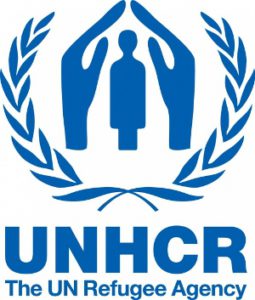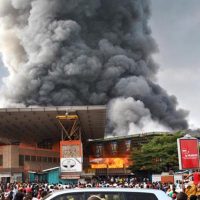Following the funding appeal of USD 391 million by the UNHCR to support 430,000 Burundian refugees in 2018, the Ministry of Home Affairs accuses the agency of providing and working on wrong figures.
 Térence Ntahiraja, Assistant to and Spokesperson for the Ministry of Home Affairs says the UN Refugees Agency continues to increase the number of Burundian refugees for its own interests.
Térence Ntahiraja, Assistant to and Spokesperson for the Ministry of Home Affairs says the UN Refugees Agency continues to increase the number of Burundian refugees for its own interests.
“The UNHCR alerts the UN to gain its funds. It never takes into account those who have already returned”, he says. Ntahiraja says about 13,000 Burundian refugees have already returned instead of 12,000 who were expected to return in 2017.
He also says another 40,000 refugees have registered to return this year. “We have many times urged the UNHCR to increase funds to support those who wish to return in vain. That International organization raises funds for those who expect to flee the country,” he says.
According to the UNHCR, refugee numbers are expected to increase to over 50,000 in 2018 as regional efforts to resolve the political crisis in the country have not made significant progress.“Our appeal aims to ensure the needs of Burundian refugees are not overlooked and the situation does not become a forgotten refugee crisis,” reads the statement.
Catherine Wiesner, UNHCR Regional Coordinator for the Burundi situation, says the human rights situation inside Burundi remains worrying. She says unless the political and socio-economic conditions improve, the outflow of Burundian refugees – mostly to neighboring countries – is expected to continue in 2018, though at a lower level.
“We are urging donors to step up support for desperate refugees who struggle to survive in neighboring countries as efforts are falling short of acceptable humanitarian standards”, she says. She also says the international community must also stay engaged in the pursuit of a genuine and lasting resolution to the Burundi crisis.
According to the UN figures, more than 400,000 refugees and asylum-seekers have fled the country, escaping human rights abuses, continued political uncertainty, and the related humanitarian crisis since 2015.
Tanzania is hosting the largest number of Burundians with 254,000 refugees, while 89,000 are in Rwanda with another 44,000 in the Democratic Republic of the Congo and some 40,000 in Uganda. Smaller refugee numbers have also fled to Kenya, Zambia, Mozambique, Malawi and South Africa.



















 IWACU Open Data
IWACU Open Data

